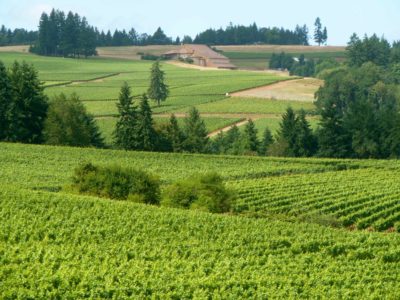Oregon Gov. John Kitzhaber has signed into law a Canola production ban designed to protect the area’s seed and organic vegetable farms from the mostly GMO crop.
The law will halt the commercial production of rapeseed (Canola) until 2019 inside the Willamette Valley Protected District. The region encompasses three million acres and is one of the preeminent vegetable seed producing locations in the world, according to the Center for Food Safety. Most canola is genetically engineered.
“We applaud Governor Kitzhaber for signing HB 2427 into law,” said Friends of Family Farmers Policy Director Ivan Maluski. “Canola is a very risky crop to introduce due to cross-pollination risk and increased pest and disease pressure on other important regional crops. The Willamette Valley should ultimately be protected for the long term, but this bill provides certainty and protections for the Willamette Valley’s valuable specialty seed, fresh market vegetable and organic industries for the next several years.”
The Canola ban comes on the heels of a Center for Food Safety lawsuit against the Oregon Department of Agriculture. The legal battle began after seed and organic vegetable farmers voiced objections to the state agriculture department’s decision to allow Willamette Valley canola production. Lawsuit filings note that the Center for Food Safety believes that canola cross-pollinates with brassica specialty seed crops. Produce which falls into this category include kale, broccoli and cabbage. The safe food supply group also maintains that such pollination spreads pests and plant diseases.
New Survival Seed Bank™ Lets You Plant A Full Acre Crisis Garden!
“Oregon’s lawmakers and governor have made the right decision to protect the valuable industry in the Willamette Valley,” said Center for Food Safety Senior Attorney George Kimbrell. “The Oregon Department of Agriculture’s unlawful action would have allowed dangerous canola planting into the valley, jeopardizing both Oregon’s farmers and environment. This important agricultural market will now continue to be a revenue center for the state of Oregon and a source of good jobs for Oregonians. Working closely with the farmers and allies, we were able to act fast to prevent ODA’s disastrous decision from taking effect. Our court case prevented any canola from being planted, allowing time for our legislative strategy to work.”
Seed producers and organic farmers also believe that canola or rapeseed production can contaminate pure vegetable and clover seeds lots, making it impossible to sale on both the domestic and international market. As previously reported by Off The Grid News, when GMO wheat was found in an Oregon field, international buyers cancelled orders and prices fell drastically.
When GMO canola cross-pollinates with other crops, it also impacts weeds. As Secret Garden of Survival author Rick Austin has said, “Weeds are good.” The sometimes unattractive garden guests play an important role in the growing process. When honeybees are subjected to GMO contaminated wildflowers, their health and survival (as well as that of the human race) may be adversely impacted, as well.
The Center for Food Safety maintains that such GMO cross-pollination of weeds creates a “new invasive species” problem, such as herbicide resistant traits. The new Canola production law replaces a former statute put into place by the Oregon Department of Agriculture in February. The prior law would have allowed industrial canola production on thousands of acres in the Willamette Valley for the next 10 years. In August of last year the same Oregon agency tried to make “widespread” Canola planting possible in the region, despite vocal opposition by the public.
“Working closely with the farmers and allies, we were able to act fast to prevent ODA’s disastrous decision from taking effect,” Kimbrell said. “Our court case prevented any canola from being planted, allowing time for our legislative strategy to work. Fortunately, this new law will trump the agency’s unlawful rule that would have allowed planting. This valuable industry is safe from the threat of canola.”
 Off The Grid News Better Ideas For Off The Grid Living
Off The Grid News Better Ideas For Off The Grid Living





